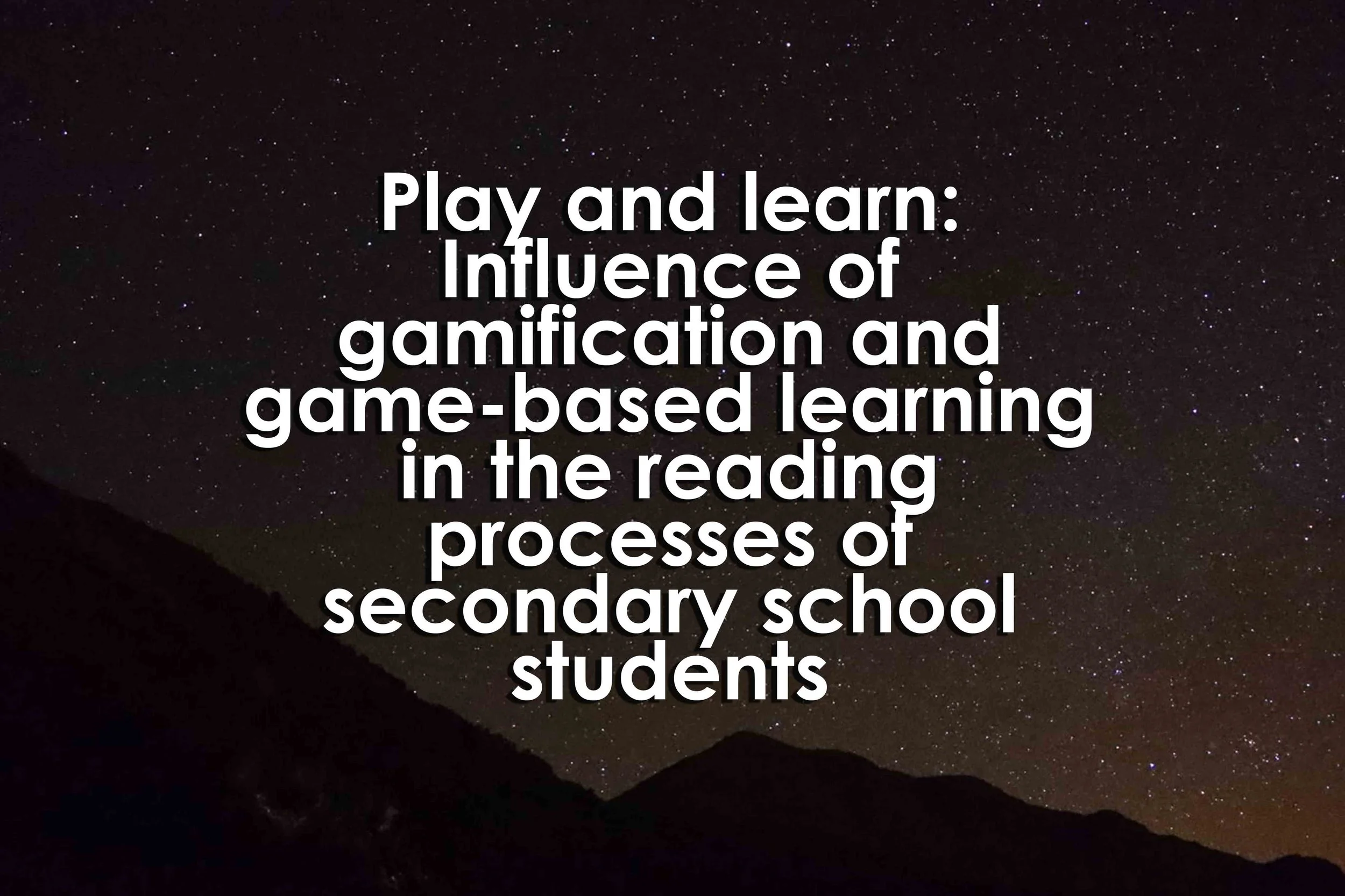Play and learn: Influence of gamification and game-based learning in the reading processes of secondary school students
Play and learn: Influence of gamification and game-based learning in
Play and learn: Influence of gamification and game-based learning in the reading processes of secondary school students
By Ana Manzano León, José Miguel Rodríguez Ferrer, José Manuel Aguilar Parra, Juan Miguel Fernández Campoy, Rubén Trigueros, and Ana María Martínez Martínez
Abstract
“The present study aims to evaluate the effectiveness of an educational gamification program in the reading processes of secondary school students. Aquasi-experimental design of comparison between groups with pretest and posttest measurements was carried out with a sample of 271 students (M = 14.42, SD = 0.72). The evaluation battery of the PROLEC-SE reading processes is used. The intervention program consists of 7or 15 sessions of one hour, and the results of two experimental groups and a control group are compared. The results indicate that, compared to the control group, the experimental groups significantly improve their score in reading processes. The implications of the results obtained, the limitations of the study handsome recommendations for future research are discussed and analyzed.”
Reference
Manzano-León, A., Rodríguez-Ferrer, J. M., Aguilar-Parra, J. M., Fernández-Campoy, J. M., Trigueros, R., & Martínez-Martínez, A. M. (2022). Juega y aprende: Influencia de la Gamificación y Aprendizaje Basadoenjuegoen los procesoslectores de alumnado de Secundaria. Revista De Psicodidáctica, 27(1), 38-46. doi:10.1016/j.psicod.2021.07.001 https://www.sciencedirect.com/science/article/abs/pii/S2530380521000186
Keyword
Gamification, game-based learning, reading processes, reader competence, specific learning difficulties, immigrant students, research

